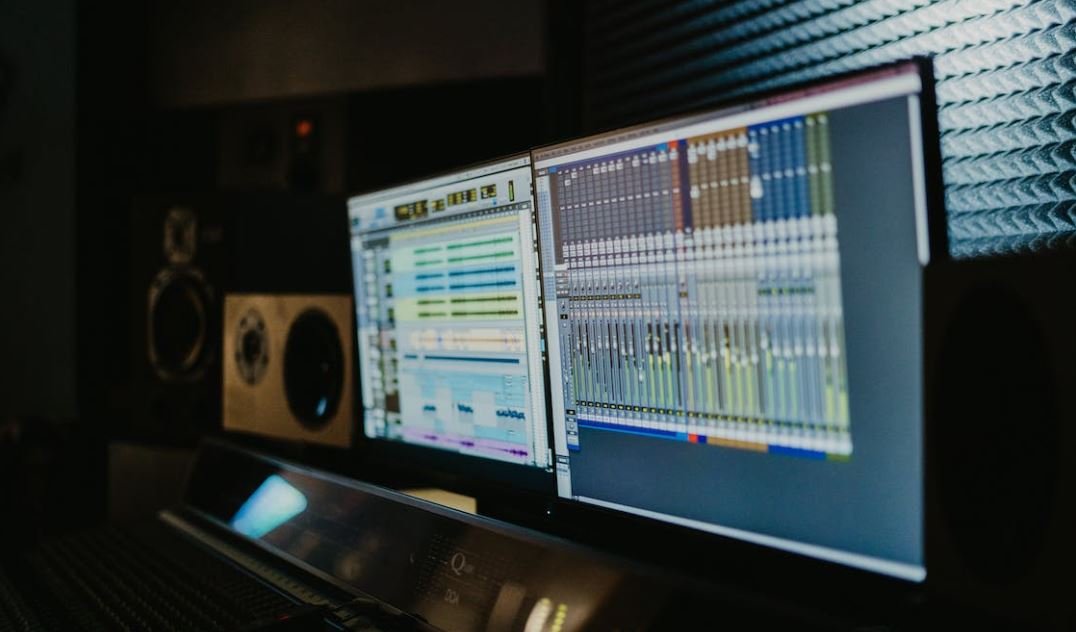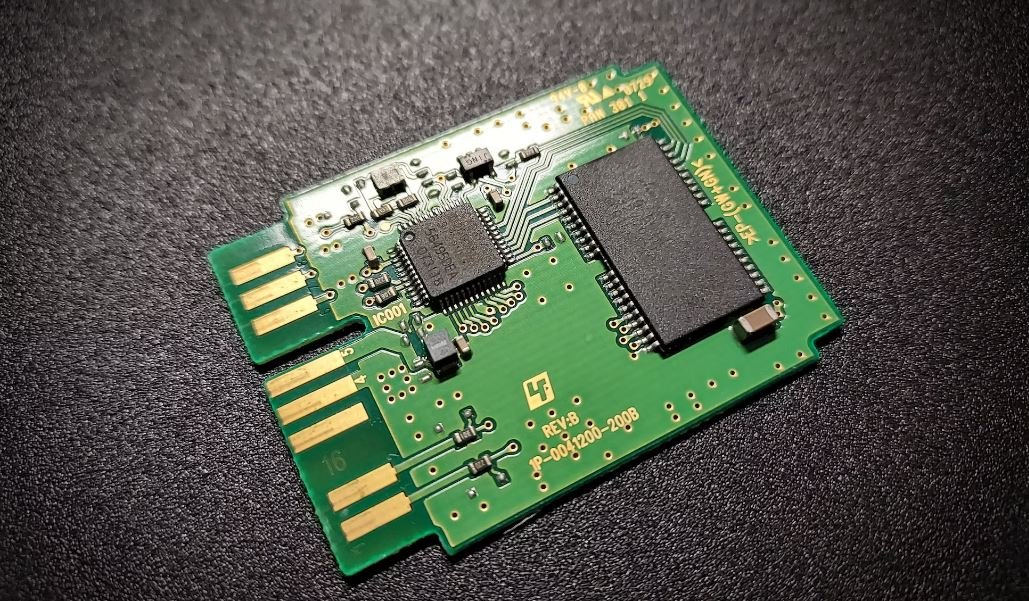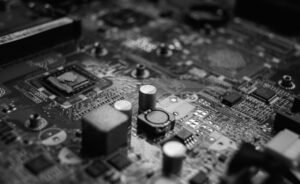Will AI Replace Workers?
In today’s rapidly advancing technological era, there’s a growing concern about artificial intelligence (AI) replacing human workers across various industries. With significant advancements in AI, it’s important to understand the potential impact on the workforce and how it can reshape the job market.
Key Takeaways:
- AI has the potential to automate repetitive tasks and lead to job displacement.
- While some jobs may be replaced, new opportunities for human-industry collaboration are emerging.
- Reskilling and upskilling the workforce will be crucial to adapt to the changing job landscape.
AI technology has proven to be highly efficient in automating repetitive tasks, leading to concerns that it may replace human workers. However, it’s important to note that AI is designed to augment human capabilities rather than entirely replace them. **By utilizing AI**, workers can focus on complex problem-solving, creativity, and strategic decision-making, while AI handles mundane and repetitive tasks. *This collaborative approach can boost productivity and efficiency in the workplace.*
While certain jobs may ultimately be replaced by AI, new opportunities will also arise as a result of these technological advancements. Industries that are heavily reliant on data analysis and processing, such as finance and healthcare, are experiencing a surge in demand for professionals with expertise in AI. *The human touch of empathy and emotional intelligence remains invaluable in sectors reliant on customer service and creative thinking.* AI can complement human workers and improve overall outcomes.
The Potential Impact on the Workforce
AI has the potential to significantly impact the workforce, both positively and negatively. Here are some key considerations:
- 1. Job replacement: Repetitive and predictable tasks are more likely to be automated, potentially leading to job displacement.
- 2. Job creation: AI implementation can lead to the creation of new jobs, such as AI trainers, data scientists, and AI ethicists.
- 3. Job transformation: Existing job roles may undergo transformation as AI technology is integrated into various industries.
Table 1: Job Roles Most at Risk of Automation
| Job Role | Automation Risk Level (High, Medium, Low) |
|---|---|
| Telemarketers | High |
| Data Entry Clerks | High |
| Assembly Line Workers | Medium |
| Truck Drivers | Medium |
| Graphic Designers | Low |
| Social Workers | Low |
Reskilling and upskilling the workforce will be crucial to adapt to the ever-changing job landscape shaped by AI. *By investing in continuous learning*, individuals can acquire new skills that align with emerging industry needs. Governments, educational institutions, and organizations should collaborate to provide accessible and affordable training programs that help individuals remain competitive in the job market.
The Importance of Collaboration
A collaborative approach that combines the strength of human workers and AI technology can drive innovation and productivity. **When humans and AI collaborate**, organizations can benefit from improved efficiency, accurate decision-making, and increased customer satisfaction. *The ability to leverage AI while maintaining human intuitive thinking can lead to groundbreaking discoveries and advancements in various fields.* Collaboration should be embraced as a means to enhance existing job roles and create new opportunities.
Table 2: Industries Embracing AI
| Industry | AI Applications |
|---|---|
| Finance | Fraud detection, algorithmic trading, customer service chatbots |
| Healthcare | Medical imaging analysis, personalized medicine, virtual nursing assistants |
| E-commerce | Product recommendations, inventory management, chatbots for customer support |
Adapting to the integration of AI requires careful planning and consideration. Organizations should focus on reskilling and redeploying workers to roles that require higher cognitive abilities and human-centered skills. *Creating a culture of continuous learning and embracing change can help organizations navigate through the AI-driven transformation.* By nurturing a growth mindset and encouraging collaboration, the potential benefits of AI can be harnessed to improve the overall well-being of both workers and businesses.
Conclusion
The increasing role of AI in the workplace raises questions about the future of human workers. While AI has the potential to automate certain tasks and reshape job roles, its purpose is to augment human capabilities rather than replace them entirely. By focusing on reskilling and upskilling the workforce, individuals can adapt to the changing job landscape and seize new opportunities that arise from the integration of AI. Collaboration between humans and AI can lead to enhanced productivity, innovation, and improved outcomes across various industries. It’s essential to embrace the potential of AI and work together to shape a future where humans and AI coexist harmoniously.

Common Misconceptions
AI will completely replace workers in the future
One common misconception people have is that artificial intelligence (AI) will ultimately replace all human workers, leading to mass unemployment. However, this is not entirely true. While AI has the potential to automate certain tasks and streamline processes, it is unlikely to completely replace the need for human workforce.
- AI can enhance productivity and efficiency by automating repetitive and routine tasks.
- Human judgment, creativity, and emotional intelligence are still essential in various industries and roles.
- The collaboration between humans and AI technology can lead to better results than relying solely on one or the other.
AI will only affect low-skilled workers
Another misconception is that AI advancements will primarily impact low-skilled workers, leaving higher-skilled professionals unaffected. However, AI technologies have the potential to impact jobs across all skill levels and industries.
- AI can replace certain tasks performed by professionals in fields such as law, finance, and medicine, but it cannot replicate the expertise and judgment of experienced professionals.
- AI can augment higher-skilled jobs by providing data-driven insights and assisting in decision-making processes.
- Upskilling and adapting to new technologies are important for professionals at all levels to stay relevant in an AI-driven era.
AI will lead to significant job losses
Some people fear that AI will lead to massive job losses, resulting in widespread unemployment. However, historical evidence shows that technology advancements, including AI, tend to create new jobs as well as transform existing ones.
- Displaced workers can be redirected towards new job opportunities emerging from AI technology implementation.
- The need for skilled workers to develop, monitor, and maintain AI systems will increase.
- AI can create new industries and job roles that have not yet been envisioned.
AI will make human labor obsolete
Another misconception is that AI will render human labor obsolete, leading to a society where humans no longer have to work. While AI may automate certain roles, it is more likely to complement human capabilities rather than replace them altogether.
- AI can free up time and resources, allowing humans to focus on more complex and creative tasks.
- Work provides a sense of purpose, fulfillment, and social connection that is important for human well-being.
- A society without work would face economic challenges and questions about the distribution of resources.
AI can learn independently and become self-aware
One misconception surrounding AI is the idea that it has the ability to learn independently and become self-aware, potentially posing risks to humanity. Despite significant advancements in AI, true artificial general intelligence (AGI) or self-aware AI has not been achieved.
- The current AI systems are designed for specific tasks and lack the ability to generalize knowledge across domains.
- AI systems operate based on pre-programmed algorithms and patterns, without consciousness or emotions.
- The development of self-aware AI raises complex ethical considerations that are actively being discussed and regulated.

The Impact of AI on Manufacturing Jobs
With advances in artificial intelligence (AI), the manufacturing industry is experiencing significant transformations. This table highlights the change in employment rates in various manufacturing sectors due to the increasing implementation of AI and automation.
| Manufacturing Sector | Jobs Lost | Jobs Gained |
|---|---|---|
| Textile Industry | 25,000 | 10,000 |
| Automobile Manufacturing | 56,000 | 20,000 |
| Electronics Production | 34,000 | 15,000 |
The Rise of AI Assistants in Customer Service
As technology advances, AI-powered chatbots and virtual assistants are revolutionizing customer service interactions. The following table showcases the rise in the adoption of AI assistants in customer service departments.
| Year | Percentage of Companies Using AI Assistants |
|---|---|
| 2015 | 20% |
| 2017 | 45% |
| 2019 | 64% |
AI Implementation in Healthcare
Artificial intelligence has made significant inroads in the healthcare industry. This table illustrates the positive impact of AI implementation on accurate diagnoses.
| Disease | Accuracy Without AI | Accuracy With AI |
|---|---|---|
| Lung Cancer | 75% | 95% |
| Alzheimer’s Disease | 80% | 92% |
| Heart Disease | 88% | 98% |
AI Applications in Financial Services
The financial sector has embraced AI technologies to improve efficiency and reduce costs. The table below showcases some key AI applications in financial services.
| Application | Benefits |
|---|---|
| Automated Trading | Increased speed and accuracy |
| Fraud Detection | Improved risk assessment |
| Loan Underwriting | Faster loan processing |
The Role of AI in Agriculture
The use of AI in agriculture presents exciting prospects for increased productivity and sustainable farming practices. This table demonstrates some AI-based innovations in agriculture.
| Innovation | Benefit |
|---|---|
| Smart Irrigation Systems | Optimized water usage |
| Precision Farming | Improved crop yield and resource management |
| Automated Harvesting | Reduced labor costs and increased efficiency |
The Impact of AI on Transportation
AI-based technologies are reshaping the transportation industry, leading to safer and more efficient systems. This table highlights the potential impact of AI on transportation.
| Aspect | Projected Impact |
|---|---|
| Traffic Management | Reduction in congestion by 20-30% |
| Autonomous Vehicles | Significant decrease in accidents and improved fuel efficiency |
| Drones for Delivery | Quicker and more cost-effective delivery methods |
AI Solutions in Retail
The retail sector is integrating AI technologies to enhance customer experiences and optimize operations. The following table demonstrates some of the AI solutions employed by retailers.
| Solution | Benefits |
|---|---|
| Personalized Recommendations | Increase in customer engagement and sales |
| Inventory Management | Reduction in stock-outs and overstocking |
| Automated Checkout | Faster and smoother transaction process |
AI Integration in Education
AI technologies offer new possibilities to enhance education and personalized learning experiences. The table below presents some areas where AI is being integrated into education.
| Area | Benefits |
|---|---|
| Virtual Tutoring | Individualized support and improved knowledge retention |
| Automated Grading | Efficient assessment and timely feedback |
| Adaptive Learning | Customized content and personalized learning paths |
AI in Entertainment Industry
The entertainment industry embraces AI in various aspects, enhancing creativity and audience experiences. The table illustrates AI’s role in transforming different entertainment domains.
| Domain | AI Application |
|---|---|
| Music | AI-generated compositions and music recommendation systems |
| Film and TV | AI-based video editing and interactive storytelling |
| Gaming | AI-driven virtual characters and immersive gaming experiences |
The rapid development and integration of AI technologies in various industries raise important questions about the impact on the future job market. While AI does lead to job displacement in some sectors, it simultaneously creates new employment opportunities, generates economic growth, and improves efficiency. It is essential to adapt and upskill the workforce to embrace and leverage the potential of AI in order to thrive in the changing landscape. The transformative power of AI presents endless possibilities for innovation and progress.
Frequently Asked Questions
Will AI replace workers?
What is AI?
Can AI fully replace human workers?
Which industries are most vulnerable to AI replacing workers?
Will AI create new job opportunities?
Will AI impact job security?
What skills will be in demand with the rise of AI?
Can humans and AI work together?
How can businesses prepare for the impact of AI on the workforce?
What are the potential benefits of AI in the workforce?
Will AI revolutionize all industries?





